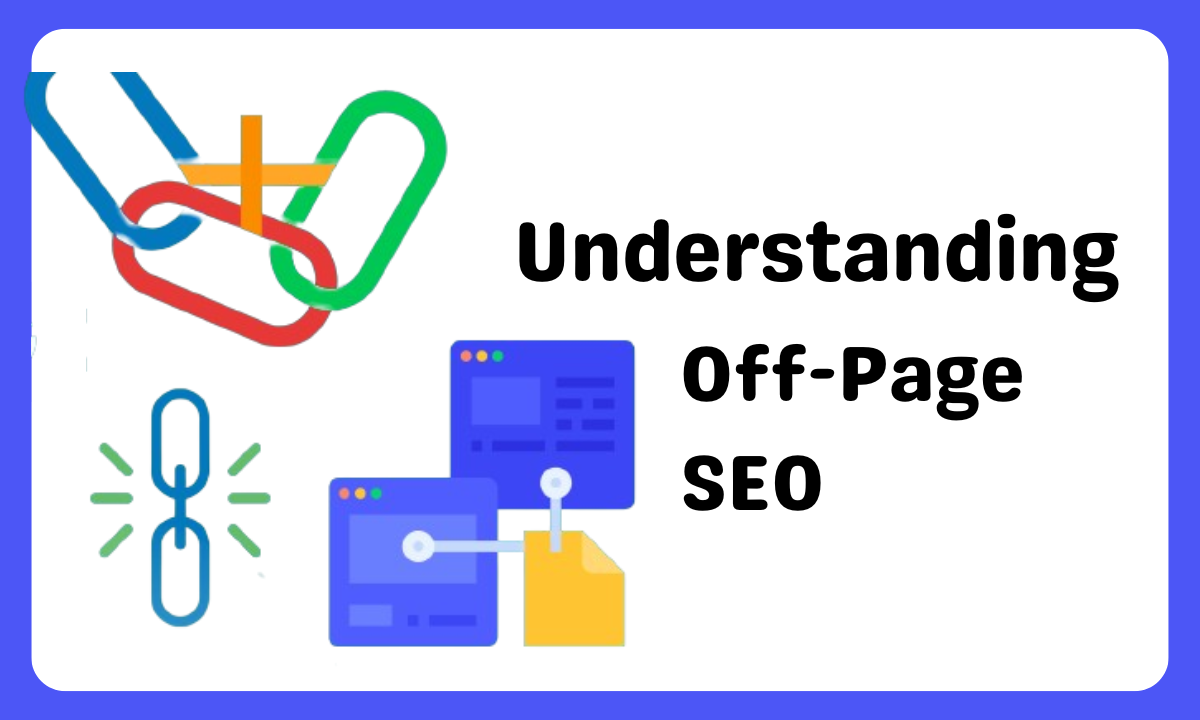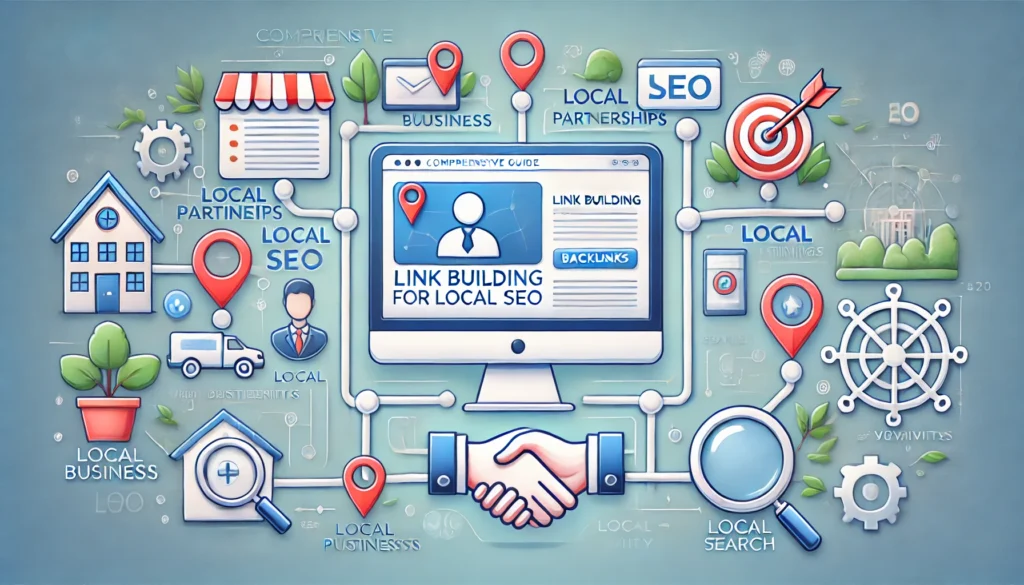Table of Contents
ToggleWhat is Off-Page SEO?
Off-Page SEO refers to all the activities you perform outside your website to improve its search engine rankings. Unlike On-Page SEO, which focuses on optimizing elements within your site, Off-Page SEO aims to enhance your site’s authority and relevance through external factors. These efforts are crucial in building your website’s credibility and attracting organic traffic.
Key Components of Off-Page SEO
- Backlink Building: Acquiring high-quality backlinks from reputable websites is the cornerstone of Off-Page SEO. By acting as votes of confidence, these backlinks let search engines know that your material is reliable and important.
- Social Media Engagement: Active participation on social media platforms can drive traffic to your site and enhance your online presence. Sharing content, engaging with users, and building a strong social media following can indirectly boost your SEO efforts.
- Brand Mentions: Even if not linked, mentions of your brand across various online platforms can positively impact your SEO. These mentions help build your brand’s authority and can lead to more direct traffic.
- Guest Blogging: Writing articles for other websites can increase your visibility and establish your expertise in your field. This practice not only helps in building backlinks but also exposes your content to a broader audience.
- Influencer Marketing: Collaborating with influencers in your industry can amplify your content’s reach and drive more traffic to your site. Influencers can provide valuable backlinks and enhance your brand’s credibility through their endorsements.
Why Does Off-Page SEO Matter?
Off-page SEO is crucial because it significantly influences how search engines perceive and rank your website. Here are the key reasons why Off-Page SEO matters:
- Boosts Credibility and Authority: High-quality backlinks from authoritative websites act as endorsements for your site. Search engines view these links as votes of confidence, which enhance your site’s credibility and authority in your niche.
- Improves Search Engine Rankings: Off-page SEO signals, like backlinks and brand mentions, play a vital role in search engine algorithms. Effective Off-Page SEO strategies can help your website rank higher in search engine results pages (SERPs), leading to increased visibility and organic traffic.
- Enhances Exposure and Reach: Engaging in Off-Page SEO activities, such as social media marketing and influencer collaborations, helps extend your reach beyond your website. This exposure attracts more visitors, builds your brand, and drives traffic from various sources.
- Builds Trust and Reputation: Consistent Off-Page SEO efforts help build a positive reputation for your brand. When users see your content shared and endorsed by reputable sources, it fosters trust and encourages them to visit your site.
- Generates Referral Traffic: Backlinks from high-traffic websites not only boost SEO but also drive referral traffic to your site. This additional traffic can lead to higher engagement rates and potential conversions.
How Does Off-Page SEO Work?
Off-Page SEO works by leveraging external factors to improve a website’s search engine rankings and overall online presence. Here’s how it operates:
- Backlink Acquisition: One of the primary mechanisms of Off-Page SEO is obtaining backlinks from other websites. Search engines use these backlinks as indicators of the quality and relevance of your content. The more high-quality backlinks you have, the more authoritative your site appears to search engines, leading to better rankings. Quality is key, as links from reputable, high-authority sites carry more weight than numerous links from low-quality sites.
- Social Media Engagement: Although social media signals are not direct ranking factors, they play a significant role in Off-Page SEO. When your content is shared widely on social media platforms, it can attract more visitors to your site, increase brand visibility, and indirectly boost your SEO efforts through increased traffic and potential backlink opportunities.
- Brand Mentions: Mentions of your brand on other websites, even without direct backlinks, can positively impact your SEO. These mentions help build your brand’s reputation and signal to search engines that your brand is gaining traction and recognition, which can contribute to higher search rankings.
- Guest Blogging: Writing articles for other reputable websites in your industry allows you to showcase your expertise and reach a broader audience. Guest blogging not only helps in building backlinks but also enhances your brand’s authority and visibility.
- Influencer Marketing: Partnering with influencers in your industry can amplify your content’s reach and credibility. Influencers can provide high-quality backlinks and bring significant traffic to your site by promoting your content to their followers.
- Online Reviews and Ratings: Positive reviews and ratings on platforms like Google My Business, Yelp, and industry-specific review sites can improve your online reputation and attract more traffic. Search engines consider these reviews as part of their ranking algorithms, particularly for local SEO.
- Forum Participation and Community Engagement: Actively participating in forums and online communities related to your industry can establish your authority and drive traffic to your site. Providing valuable insights and linking to your content when relevant can enhance your SEO efforts.
How to Do Off-Page SEO
Implementing effective Off-Page SEO involves a variety of strategies aimed at improving your website’s authority, visibility, and reputation. Here are some key tactics:
1. Build High-Quality Backlinks
- Guest blogging: Compose insightful pieces for respectable websites related to your field. Include a link back to your site in your author bio or within the content when appropriate.
- Broken Link Building: Look for links that are broken on other websites and provide your material as a substitute. This approach provides value to the site owner and earns you a backlink.
- Content marketing: Produce informative, sociable media like films, infographics, and in-depth manuals. Promote this content to attract backlinks naturally.

2. Engage on Social Media
- Share Your Content: Regularly post your content on social media platforms to increase visibility and drive traffic to your site.
- Interact with Followers: Engage with your audience by responding to comments, participating in discussions, and sharing relevant industry news.
- Collaborate with Influencers: Partner with influencers to share your content and reach a broader audience.

3. Earn Brand Mentions
- Press Releases: Write and distribute press releases about significant company updates or new products to gain media coverage and brand mentions.
- Public Relations: Develop relationships with journalists and bloggers to feature your brand in their content.
- Participate in Industry Events: Speak at conferences, webinars, and industry events to build your brand’s reputation and earn mentions.

4. Utilize Online Reviews and Ratings
- Encourage Customer Reviews: Ask satisfied customers to leave positive reviews on platforms like Google My Business, Yelp, and industry-specific review sites.
- Respond to Reviews: Engage with reviews, both positive and negative, to show that you value customer feedback and are committed to improvement.

5. Participate in Online Communities
- Join Forums and Q&A Sites: Participate in forums and Q&A sites like Reddit and Quora. Provide valuable insights and link to your content when relevant.
- Engage in Industry Groups: Join and contribute to industry-specific groups on platforms like LinkedIn and Facebook to establish your authority.

6. Leverage Influencer Marketing
- Identify Relevant Influencers: Find influencers in your industry whose audience matches your target market.
- Collaborate on Content: Work with influencers to create and promote content, such as blog posts, videos, or social media campaigns, that link back to your site.
7. Optimize for Local SEO
- Claim Your Business Listings: Ensure your business is listed on Google My Business and other local directories.
- Get Local Citations: Submit your business information to local directories and citation sites to improve your local search rankings.
- Engage with Local Media: Participate in local events and get featured in local media to boost your local SEO efforts.
Final Thoughts on Off-Page SEO
Off-page SEO is a critical component of a successful digital marketing strategy. It extends beyond the confines of your website, focusing on building your site’s authority, trustworthiness, and visibility through external means.
By leveraging high-quality backlinks, engaging on social media, earning brand mentions, and participating in online communities, you can significantly boost your search engine rankings and attract more organic traffic.
Consistent and strategic Off-Page SEO efforts will not only enhance your site’s credibility but also create a solid foundation for long-term online success. Remember, the digital landscape is ever-evolving, so staying updated with the latest trends and continuously refining your Off-Page SEO strategies is essential for maintaining a competitive edge.





